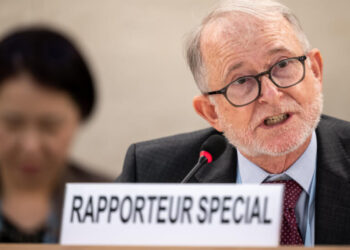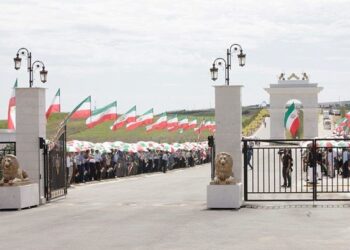Human Lives Human Rights: Iranian opposition groups have launched an online campaign aimed at reducing political relations between the Group of Seven (G7) countries and Iran. The campaign seeks support from international leaders by requesting the expulsion of Iranian diplomats and representatives from various international organizations in G7 countries. The justification for this request is the “ruthless and violent suppression” of nationwide protests following the murder of Mahsa Amini. The campaign also calls for the release of prisoners from Iranian jails, including political prisoners, civil activists, artists, ethnic and religious minorities, labor activists, and others who are allegedly at great risk. While legally such requests cannot be made, the power of social media and virtual networks can be significant determinants in shaping public opinion, making it a logical and convincing way to exert pressure on G7 countries.
The online campaign addressed to the leaders of G7 countries, the world’s seven major industrialized nations, has gathered over 200,000 signatures calling for the expulsion of Islamic Republic envoys and representatives from international organizations based in these countries. The campaign, which is directed at the foreign ministers of Britain, Canada, the United States, Japan, Germany, France, and Italy, asks them to immediately label “Islamic Republic envoys or their representatives in international organizations” as unwanted individuals and “expel them from their country” in protest against the “ruthless and violent suppression” of nationwide protests by the people of Iran following the murder of Mahsa Amini.
The campaign, which began on October 14th with efforts by Kaveh Shahrooz, a human rights lawyer and activist residing in Canada, also calls on these countries to “firmly and unequivocally demand freedom for prisoners from Iranian prisons.” Hamed Esmaeilion, spokesperson for the Association of Families of Victims of Flight PS752, also shared the campaign on his Twitter account, citing the fire at Evin prison on Saturday evening.
The text of the online campaign, which was published on the largest online petition platform (Change.org), refers to the deep concern of “members of the Iranian justice and human rights defense group, along with other signatories,” regarding events that have taken place in Iran over the past five weeks: “We are concerned that the lives of many prisoners who have been imprisoned solely for opposing the government (including political prisoners, civil activists, artists, representatives of religious and ethnic minorities, labor activists, and others whose list will be long), as well as dual-nationality prisoners who are in this and other prisons, are severely endangered.”
Some points regarding this campaign can be evaluated. It should be noted that since ancient times, the exchange of envoys and political representatives between different countries has been common, and the reduction, increase, expulsion, and calling of subordinate representatives of countries, including diplomatic rights, have been valid and enforceable among countries that have exchanged ambassadors or diplomats with each other. Therefore, according to the rules of public international law, which include diplomatic rights as a part of it and are valid and enforceable on official political relations between countries, under no circumstances is it commonplace and accepted for a group or governmental or non-governmental organization to request one or more countries to increase or decrease their diplomatic relations with another country. Even the United Nations, as the largest international governmental organization operating globally, cannot take such action.
However, on the other hand, given that today’s world is a world of communication and information explosion, and cyberspace and social networks have an unparalleled role in directing public opinion, these elements are very influential and important in determining the role of actors in the current international environment. Therefore, if we look at this campaign from this perspective, we can analyze and evaluate the logical and convincing justification that calls for pressure on G7 countries to avoid passing through the public opinion environment. However, there is no legal reason to justify or explain this action.


















